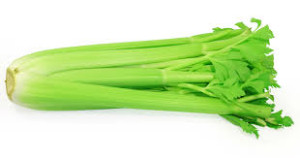Do you get hungry when you’re trying to lose weight?
Many of us do. But smart eaters know that if you get enough fiber in your diet the hunger is more likely to go away. And healthy eaters also know that natural foods are a great source of fiber. But dieters beware. Some high fiber foods are also high in fat and high in calories. If you want to curb your hunger and lose weight, use list of natural foods for weight loss that are high in fiber but low in calories and low in fat.
You’ll find all of them in your local grocery store and they are easy to carry with you for a quick, diet-friendly snack when you’re on the go.
Chick peas, also called garbanzo beans, are one of the most versatile high-fiber foods. A half cup of the hearty bean provides about 140 calories and almost 6 grams of fiber.
If you love the nutty taste of chick peas, you can eat them alone or as a side dish. But many cooks like to use them in recipes. I use them to make low calorie hummus (without the tahini). You can also add garbanzo beans to soups and salads or make chick pea poppers as a snack.
Guava is a delicious tropical fruit that provides 45 calories and five grams of fiber per medium fruit. Guavas can be eaten raw but many people who are trying to lose weight use them to make a healthy smoothie.
To make a smoothie with guava, combine any part of the fruit (all of it is edible!) with berries or citrus fruit. Strawberries and pineapple pair well with guava. Add dairy like skim milk or yogurt if you want, but you don’t have to. You can even add spinach for a healthy dose of protein – and more fiber!
Got a sweet tooth? Pears will satisfy your craving and deliver a healthy dose of fiber. A small ripe pear only has 85 calories but provides 5 grams of fiber. Some shoppers avoid pears because they are tricky to store. And if you end up throwing them in the trash, then the cost isn’t worth it. But if you pick and store pears properly they can actually keep for months.
 Celery has a well-worn reputation as a diet staple. But there is a reason that smart dieters keep this veggie in the crisper. It’s cheap, it’s versatile, and it’s super low in calories. Celery is also a good source of dietary fiber. A medium stalk of celery has just 6 calories and one gram of fiber. That doesn’t sound like a lot of fiber, but if you consider all of the ways you can use celery, those fiber grams can add up quickly. Chop up celery and add it to a veggie omelet in the morning for breakfast. Pack two or three stalks to munch on at lunch. You can even make cream of celery soup for dinner. Use white beans (more fiber!) instead of heavy cream to cut the calories and keep the soup smooth.
Celery has a well-worn reputation as a diet staple. But there is a reason that smart dieters keep this veggie in the crisper. It’s cheap, it’s versatile, and it’s super low in calories. Celery is also a good source of dietary fiber. A medium stalk of celery has just 6 calories and one gram of fiber. That doesn’t sound like a lot of fiber, but if you consider all of the ways you can use celery, those fiber grams can add up quickly. Chop up celery and add it to a veggie omelet in the morning for breakfast. Pack two or three stalks to munch on at lunch. You can even make cream of celery soup for dinner. Use white beans (more fiber!) instead of heavy cream to cut the calories and keep the soup smooth.
 Hearts of palm is a crisp vegetable new to many healthy eaters. At the grocery store, you’re more likely to find them in the canned vegetable aisle than in the produce department. Although if you can find and prepare the fresh variety, you’ll probably be able to decrease the sodium content and get a cleaner taste. A full cup of hearts of palm has only 41 calories and provides 4 grams of fiber. Many people compare the taste to asparagus or artichokes so they are easy to chop up and add to salads. They can also be cooked with lemon as a side dish. To keep the calories in control, use chicken stock instead of butter when you cook them.
Hearts of palm is a crisp vegetable new to many healthy eaters. At the grocery store, you’re more likely to find them in the canned vegetable aisle than in the produce department. Although if you can find and prepare the fresh variety, you’ll probably be able to decrease the sodium content and get a cleaner taste. A full cup of hearts of palm has only 41 calories and provides 4 grams of fiber. Many people compare the taste to asparagus or artichokes so they are easy to chop up and add to salads. They can also be cooked with lemon as a side dish. To keep the calories in control, use chicken stock instead of butter when you cook them.
Frozen berries are great if you’re on a budget while you’re trying to lose weight, you might avoid the high-priced packages of fresh berries in the produce department. But you can still keep berries in your diet. Just buy them in the freezer aisle instead. Frozen berries are a great source of fiber as well as other healthy nutrients. Frozen unsweetened blackberries, for example, have 97 calories per cup and 8 grams of fiber. Frozen raspberries contain just 64 calories and 8 grams of fiber.
So what’s the best way to eat frozen berries? Make a low calorie, high fiber smoothie!
I like this Berry Orange Smoothie recipe from The Shred Diet Cookbook:
2 large oranges, peeled, chopped
1/2 cup frozen blueberries
1/2 cup frozen raspberries
1/2 cup frozen strawberries
6 ice cubes
The recipe serves 2 and contains only 134 calories per serving and 8 grams of fiber.
Smart cooks and savvy dieters keep white beans on hand in the kitchen. Of course, almost all beans are healthy sources of fiber, but I like white beans because they are more versatile. A half cup serving of white beans provides 150 calories and a 6 grams of fiber. You also get almost 10 grams of protein in that serving of beans.
You can throw whole white beans into soups and salads, but I like to puree white beans and add them to my soup recipes.
Most cream soup recipes (like the cream of celery soup that I mentioned earlier) have heavy cream or butter added to get the smooth texture. But you can skip the high fat dairy products and use pureed white beans instead. It’s easy to do and delicious.
Many smart eaters choose whole grain bread to increase their fiber intake. But did you know that you can get more fiber and fewer calories with crackers? It’s true, but you have to choose the right crackers. A single slice of homemade or artisan whole grain bread provides about 130-150 calories, 2 grams of fat and 3 grams of fiber. But a single serving of Light Rye Crackers provides only 46 calories, 2 grams of fiber and zero fat. For a fiber-rich lunch, grab 4 crackers (2 servings) to get 4 grams of fiber. Then layer on sliced red peppers (also a good source of dietary fiber) low calorie hummus and herbs for a fiber packed meal.
Frozen peas aren’t the fanciest vegetable, but they are packed with fiber, they’re cheap and they are super easy to store in the freezer and use in a pinch.
A single half-cup serving of peas provides 62 calories and 4.4 grams of fiber. You’ll also benefit from over 4 grams of protein when you eat a serving of peas.
I throw peas into every salad that I make. I also throw a handful of peas into many of the lean ground turkey recipes that I prepare – even when peas aren’t on the ingredients list.
Peas have a soft flavor that blends well with everything. If you like to eat peas on their own, use one of these low calorie green pea recipes.
Spinach is a diet super food for many reasons. This leafy green vegetable is so versatile and packed with nutrition. A one-cup serving of cooked spinach provides 41 calories, 4.3 grams of fiber and 5.3 grams of protein. If you’re serious about losing weight, you should always keep a bag of spinach on hand. So what’s the best way to eat spinach? I use spinach instead of iceberg lettuce on my sandwiches and salads. I add spinach to my morning omelet and I’ve even made healthy spinach ice cream in a blender.
Many squash varieties provide fiber, but acorn squash is one of my favorites because it is easy to find in the produce section, it’s generally inexpensive and it’s easy to prepare. One half acorn squash provides 67 calories, 3.25 grams of fiber and even 1.75 grams of protein. Acorn squash is great for dieters who love comfort food. This naturally, sweet warm food is a great replacement for other high starch foods like potatoes or pasta. What the best way to prepare acorn squash? I like to roast it, but you can experiment by using acorn squash in soups, casseroles and even in baked goods.
Looking for a cheap and easy way to add fiber to your diet? It doesn’t get any easier than cauliflower. A serving of this versatile vegetable provides 2.5 grams of fiber, 2 grams of protein and only 25 calories! Because cauliflower has increased in popularity, you’ll find plenty of online recipes for new and interesting ways to use the vegetable. It’s still a great crunchy vegetable to eat raw, but you can also mash cauliflower the same way you would mash potatoes.
Everyone knows that brocolli is good for weight loss, but do you know why? One cup provides 31 calories, 2.4 grams of fiber and 2.5 grams of protein. That means you can fill up on broccoli and still have room in your diet for a small portion-controlled treat. If you don’t like the texture of broccoli, use in it in a cream soup. You’ll get the flavor and nutrition of this healthy veggie without the texture that many dieters don’t like.
http://weightloss.about.com/od/CookingTips/ss/15-Natural-High-Fiber-Foods-for-Weight-Loss.htm#step16


Comments are closed